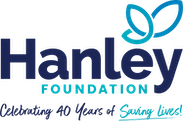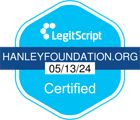This practical single-session program illustrates the harms of marijuana and e-cigarettes, corrects misconceptions, and promotes healthy behaviors in youth.

Promoting Social Change
By increasing knowledge and raising awareness while also influencing behavioral change, the MVP program promotes positive change within communities.
Tenets of the Program
The Marijuana and Vaping Prevention program challenges the belief that marijuana and e-cigarettes are less risky, or even healthy alternatives to traditional cigarettes and other illicit drugs. During the single-session program, students are taught the following concepts:
- Nicotine in any form is a highly-addictive drug, and no form of nicotine—whether smoked or “vaped”—is safe
- Vaping devices often contain added chemicals that may have long-term health effects
- Users often receive larger doses of toxicants through vaping than cigarettes
- Pharmacology of marijuana
- How marijuana and e-cigarettes are marketed to young people
- How to practice effective strategies for resisting peer pressure
Increasing Knowledge and Raising Awareness
The MVP program educates students with a clear understanding of what happens when a person uses marijuana, highlighting that marijuana is not safer than other drugs, and how using it gets in the way of things that youth value. With this knowledge, students are empowered to make more positive choices.
Addressing Misconceptions
MVP emphasizes several basic facts regarding marijuana use. A common misconception purports that “Marijuana is not addictive,” however, evidence suggests otherwise. People who begin using marijuana before age 18 are 4 to 7 times more likely than adults to become addicted. Additionally, today’s strains of THC are much stronger compared to marijuana from decades past, creating dependence and leading to withdrawal symptoms.
Through the MVP program, students are guided to evaluate the short and long-term consequences of marijuana use; and how it specifically harms a teenager’s developing brain.
Influencing Behavioral Change
Another key component of the MVP program is media literacy. By teaching students about advertising goals and targeting, they can learn how media is used to influence their attitudes surrounding drugs and alcohol. With careful examination and guidance, the MVP program teaches students how to spot aggressive marketing tactics, so they are better able to limit this influence.
In Partnership with:



